BREWERIES, CONFECTIONERS, RESTAURANT kitchens, furniture-making shops, bakeries — the visible workspace has been a staple of some industries for years. A smaller number of optical businesses have embraced the open lab as a way of reinforcing a memorable optical experience; letting patients know they’ll be getting their glasses quickly, finished and edged to perfection; and that what they’re taking home is a combination of art and science, produced by skilled craftspeople and technicians — and well worth every penny you ask for it. Below, INVISION looks at a handful of practices that have embraced the concept and continue to refine it.
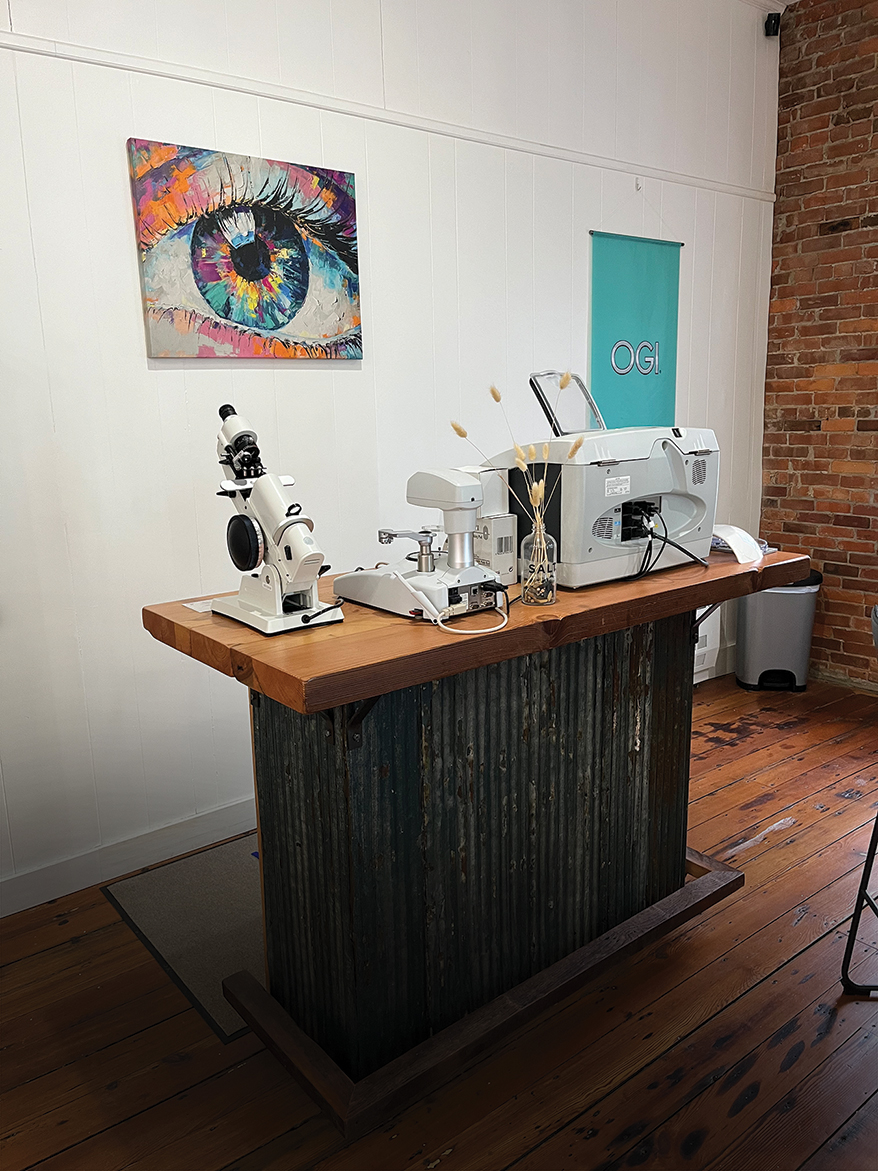
The Novel Eye
North Kingstown, RI
The Novel Eye’s lab stands proudly on its retail floor, partly to convince customers that their costs are justified, but also, as owner Anthony Rebello explains, “so our customers can see exactly how a pair of glasses is made.” Customers are intrigued, and it clearly drives home the point that they can expect their eyewear to be ready soon. The main materials used are Trivex and Polycarbonate, so the smell isn’t bothersome, Rebello says, adding that the occasional High Index lens is cut during off-peak business hours. “To open the window to this part of opticianry has been a game changer for us.”
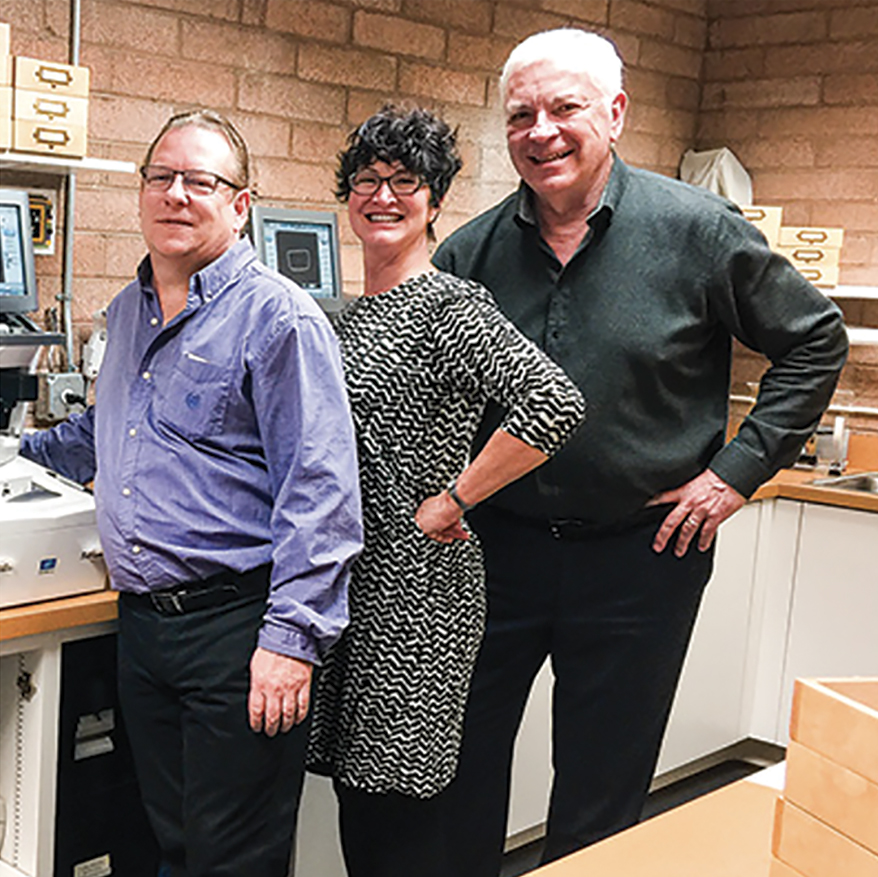
Sonoma Eyeworks
Santa Rosa, CA
Cindy Harmon at Sonoma Eyeworks boils the pluses of having an in-office lab down to three things: It allows you to provide exceptional customer service; it differentiates you from other practices; and it serves as a business builder. Her lab manager has greater quality control on one-of-a-kind frames, custom drill mounts, and “does so much more than just edge lenses,” she says. Enhancing the impact of all these pluses, the lab is somewhat visible, which “allows customers to witness the complexity of fabricating eyewear,” says Harmon. “It’s very easy to discount the reasons for investing in laboratory technology and the additional staffing. We’ve always felt it is one of the silent partners in our success.”
Advertisement
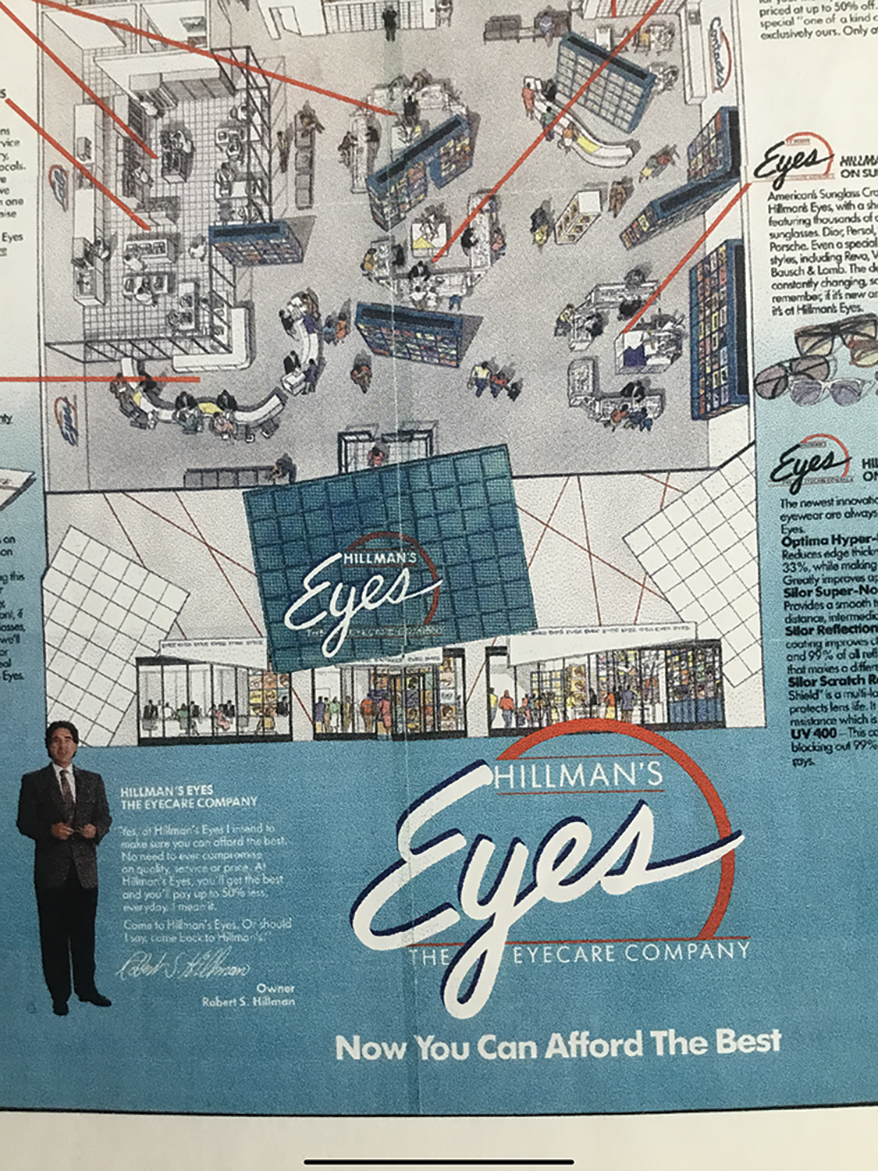
EYELAB
Paramus, NJ
Bob Hillman’s current business, Fabulous Fanny’s, a small vintage eyewear boutique that’s something of a landmark in NYC, does not have a lab, but Hillman knows a thing or two about them — and the merits of opening them up to the public. His father pioneered the open lab format at his wholesale/retail shop in Paterson, NJ, in the 1950s, and Hillman followed suit at his first store in Saddle Brook. But in 1980 Hillman raised the bar with the opening of the 20,000 sq. ft. EYELAB in Paramus, NJ. The world’s first “eyewear department store,” the free-standing building’s seven exam lanes, pre-exam area and contact lens department were all open to the public, as was its full service 2,500 sq. ft. lab viewable through a huge showcase window. Commercial air filters drew out production smells. Patients responded positively to the open format, Hillman says, “as we were able to show how their glasses were made, taking out the mystery. We made most, if not all, while they waited,” and the feature was heavily marketed. Hillman eventually sold the business but believes the location retains its giant lab window. A “model” store blueprint he developed for Hillman Eyes, a 12-store chain he ran from 1988-1998, featured wrap-around 8-ft. glass with full lab and lens stock. There was even a 4 ft. opening at the top, “I wanted the patient/customer to hear the producing of the lens product,” he says. Hillman’s fondness for open labs continues in his latest venture in Shanghai where he has built an eyewear chain using the same glass open lab formula — even in kiosks as small as 300 sq. ft. — stressing the one-stop shopping experience.
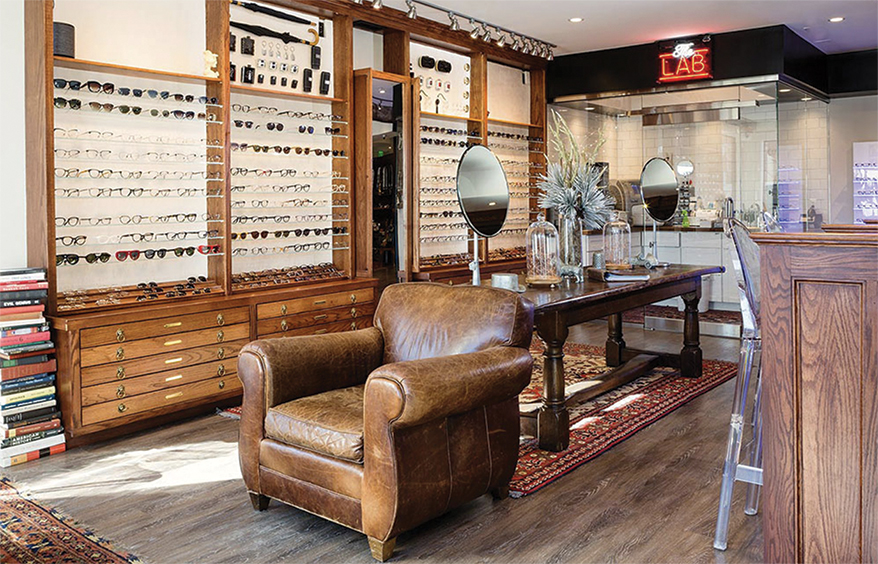
Todd Rogers Eyewear
Andover, MA
At Todd Rogers, a beautifully restored space that once housed a historic bar and grill, nestled in a corner and crowned with a neon sign — and contrasting beautifully with the boutique’s centuries-old exposed wooden beams — is a glass wall “fishbowl” lab. Owner Todd Rogers Berberian and his wife Leigh offer the latest in lens finishing and eyecare tech and want their clients to know it. “We’re independent in our lens lines as well [as our frames] and we’re all about educating our patient base,” explains Todd. What better way to do this than show people that beautiful frames and quality lenses are put together with care and skill from quality materials. “When bluntly asked, ‘Why are your glasses more expensive than the mall shop down the road?’ I gently explain… ‘I believe in the quality and integrity of the particular lenses Todd Rogers Eyewear champions’… Properly educating our clients is the non-negotiable job of every optician. Knowledge is what will keep our vocation and our craft relevant in a time when consumers are so easily lured to the next bargain.”
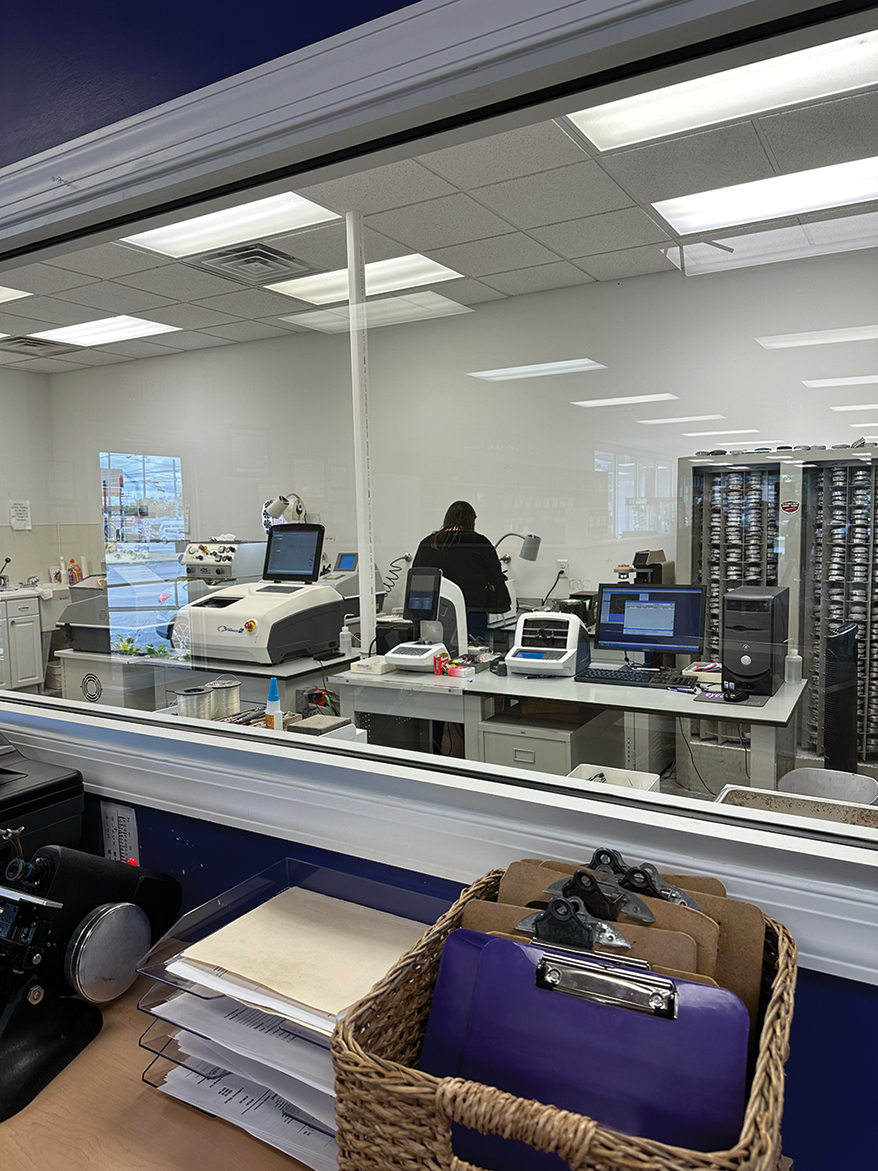
Eyear 1 Hour Optical
Chattanooga, TN
Eyear, the first “1 Hour” optical company in Tennessee, has always had a visible lab with an invitation to customers to “watch their glasses being made.” Making the operations visible drives home the point to patients that the lab is on-site — with all the benefits that entails. “No one else does that anymore,” says owner Cindy Henderson, and she can only wonder why, as she sees it as a huge selling point. All processes are done in full view and onsite, with the exception of anti-reflective coating — and that’s in the works. “We’ve had the visible labs since 1983, so after 40 years, most of our customers don’t gasp in wonder anymore. We still get a few that are surprised that their custom ground eyewear will be ready in about an hour,” she says. Once in a while someone will stand at the large window and stare at the opticians. “They love being in the ‘fishbowl,’” Henderson assures us. High-index lens processing does smell pretty bad, she admits, “but we’ve gotten accustomed to the odor. People rarely comment.”
Advertisement